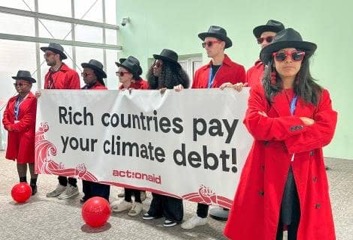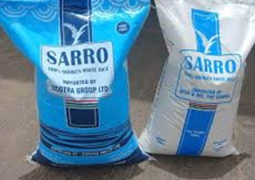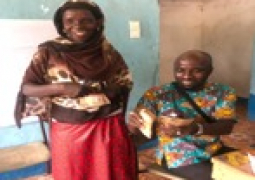
The findings reveal that Africa alone is owed at least US$36 trillion, far exceeding the continent’s total foreign debt. Despite this, African countries continue to prioritize debt repayments to rich countries and global financial institutions, sacrificing critical public services such as healthcare, education, and climate action.
“It is a travesty that African nations are being crushed under the weight of foreign debt, while the world's richest countries evade their responsibility to pay for the climate crisis and reparations for historical injustices,” said Arthur Larok, Secretary General of ActionAid International. “By forcing countries to prioritize debt repayment over essential services, rich countries are pushing Africa to the brink.”
Debt servicing over human rights and climate action
The report highlights that in 2024 alone, lower-income African countries paid US$60 billion in debt repayments, diverting funds from crucial sectors that could improve the lives of millions. In contrast, rich countries should be paying at least US$1.4 trillion every year in climate finance to African countries, an amount 25 times greater than Africa’s annual debt payments.
Chikumbutso Ngosi, Young Urban Women Programme Manager at ActionAid International, emphasized the gendered impact of this crisis: “Servicing external debts and complying with IMF loan conditions are undermining investments in health, education, and climate action, disproportionately affecting women and girls. Meanwhile, rich countries get away without paying their debts to Africa. How is that fair?”
Unjust global financial system worsens the crisis
The report also exposes the stark inequality in global finance. African countries are charged an average interest rate of 9.8% on loans12 times higher than the 0.8% interest rate paid by Germany. This predatory system keeps African nations in a cycle of debt and dependency, making it nearly impossible for them to fund their own development and climate adaptation efforts.
A call for action: Debt cancellation and a new global financial system
With 2025 declared by the African Union as the Year of Reparations, ActionAid urges African leaders to take a stand against both historical and ongoing injustices. The report calls on the AU and global movements to:
Establish a new UN Framework Convention on Debt to replace the unfair, colonial financial system controlled by the IMF.
Demand immediate debt cancellation as a first step toward repaying the climate debt and other reparations owed by rich countries.
Andrew Mamedu, Country Director of ActionAid Nigeria, stressed the urgency of these reforms: “For Africa to overcome the debt crisis and climate challenges, we need debt cancellation and a complete break from the colonial debt system that has burdened us for decades. The AU must ensure a new UN Framework on Debt is agreed upon in this Jubilee year.”
A turning point for Africa
The year 2025 presents a critical opportunity to shift global financial policies in favor of low and lower-middle-income nations. Joy Mabenge, Country Director of ActionAid Zimbabwe, underscored this need for systemic change: “We need a fundamental overhaul of the global financial architecture, shifting the power over debt away from the IMF to a more representative and inclusive UN body.”



